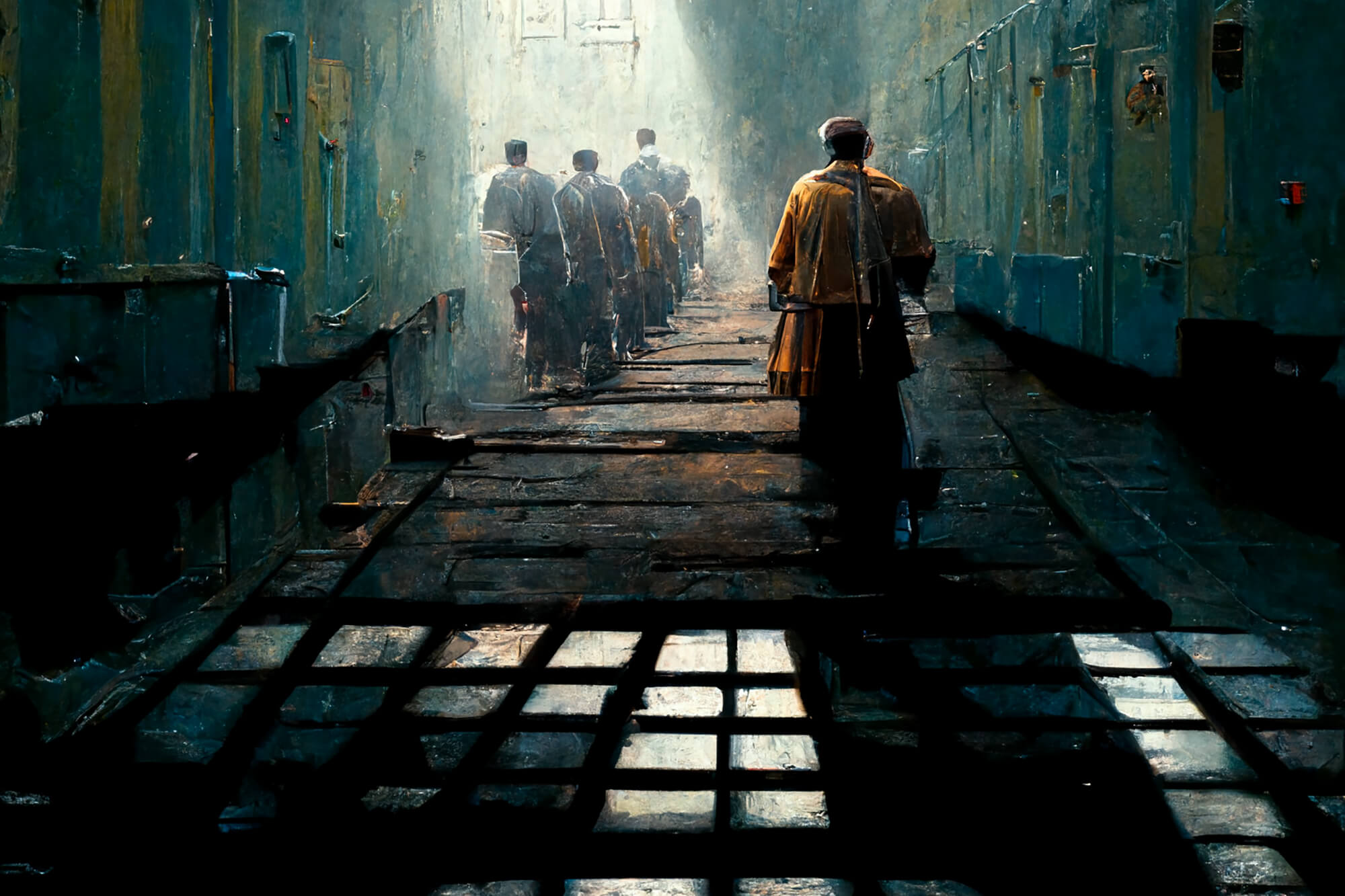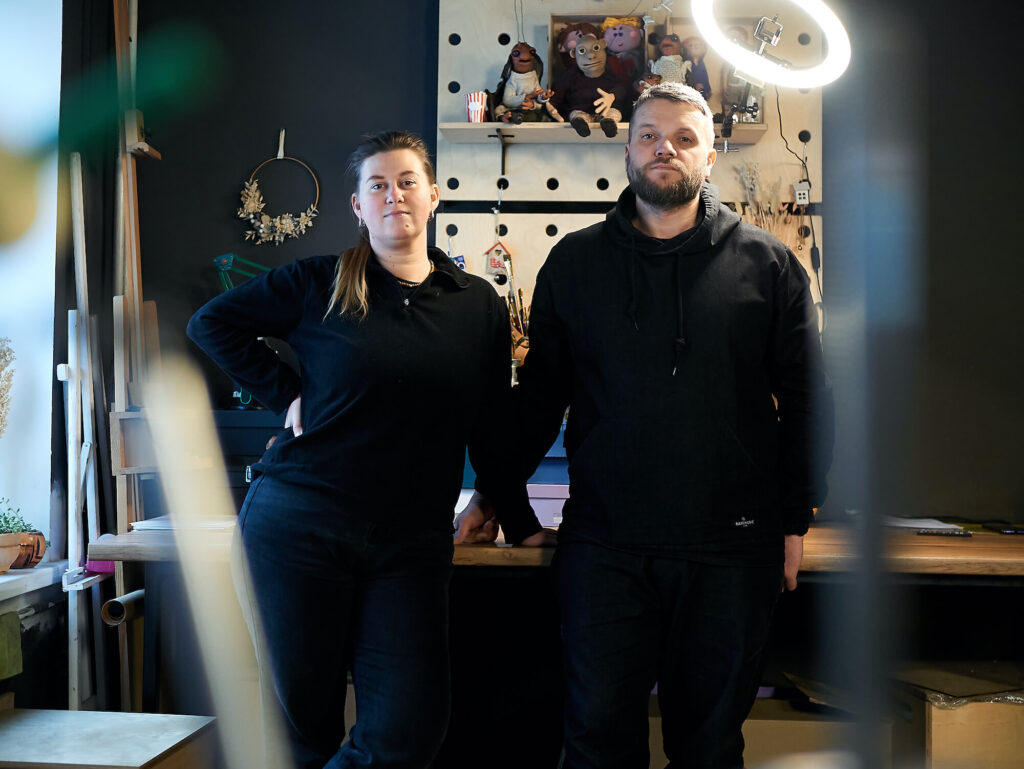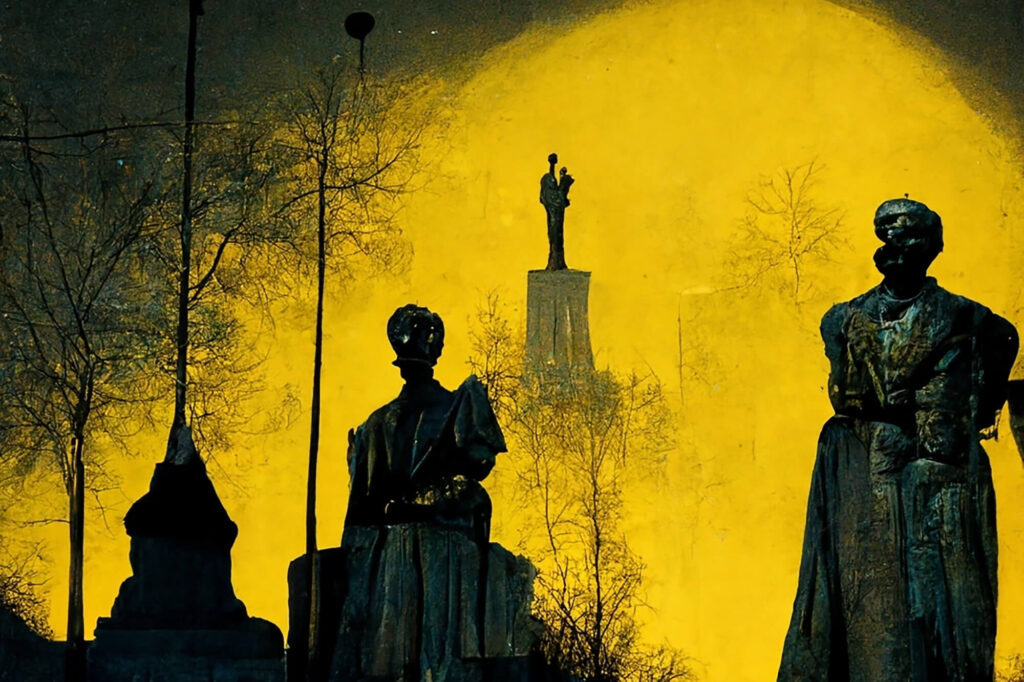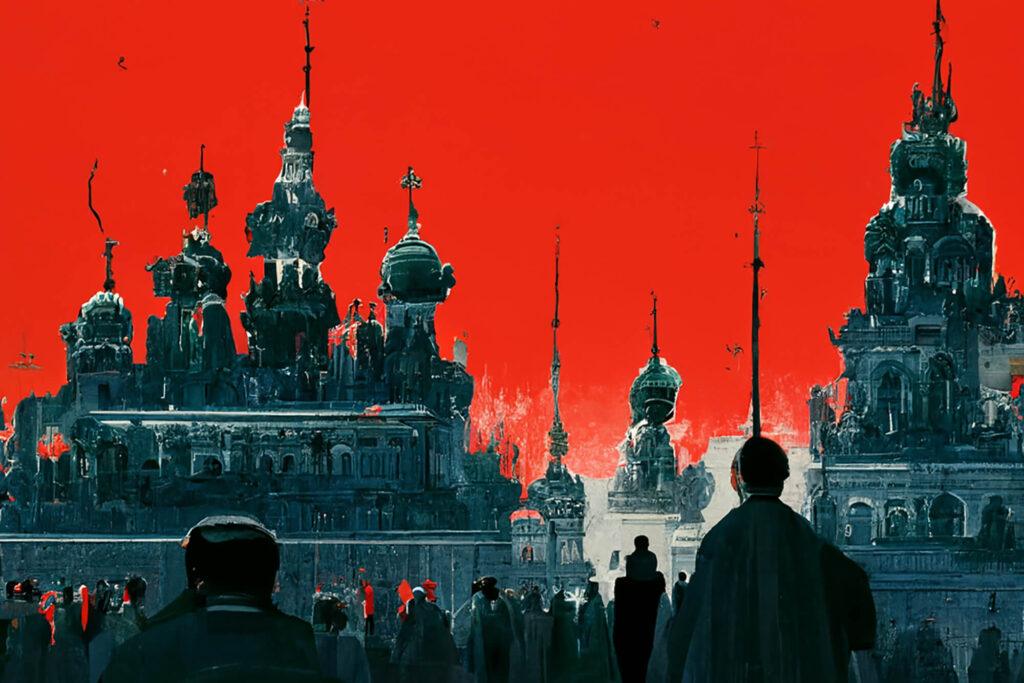The Ukrainians Media is an award-winning independent media company focusing on high-quality, long-form, and visual journalism. Our mission is to foster positive social changes in Ukraine.
This story was created thanks to the support of our readers. Please join The Ukrainians Community on Patreon and help us publish more important and interesting stories.
These seemingly paradoxical words of Paul the Apostle came to mind when I watched a video of the recent release of the Azov Regiment fighters from captivity. They walked exhausted, even staggered, but were high-spirited and indomitable. The occupiers could do whatever they wanted with their bodies, but their spirit was beyond the torturers’ control.
What is the secret here? To me, it is the existence of an invisible screen between one’s spiritual core and the ugly realities of imprisonment. This screen is wholly impenetrable but evident in the faces of the liberated. In any case, all political prisoners of the Brezhnev era who happened to live to this day can immediately witness its existence. Because one way or another, all of us experienced the moment of choice—either to be devastated and stripped of our dignity or to tell ourselves once and for all what our fellow political prisoners used to say before us: “They will never succeed in humiliating and breaking me!”It was precisely how we produced this protective psychological screen, helping to endure endless strip searches, prison shakedowns, and abuse calmly: “Do whatever you want with me, but you will not strip me of my dignity!”
Thus, from generation to generation, the same phenomenon is reproduced in the lives of peoples, which prompted Nero’s Christian prisoners to calmly look into the lions’ mouths in Rome’s Colosseum or Ukrainian prisoners of the NKVD dungeons to endure extreme torture. It is a moment when two instincts collide in a human soul. On the one hand, the self-preservation instinct calls for one to preserve their life, even at the price of compromising with authorities and their torturers. And on the other hand, the moral instinct, or the voice of conscience, prompts one to stand up for the truth and protect the honor of the people and one’s dignity.
The history of all despotic governments testifies that, unfortunately, many people choose supposed salvation through betrayal and, at best, vanish into oblivion. In contrast, the heroism of a minority remains in the memory of mankind as an example of ultimate self-sacrifice and therefore has life everlasting. Because, in every new generation, this heroism always finds new hearts for striking the spark of new heroic self-devotion.
I sincerely thought that this chain would break at our dissident generation. But then followed the Maidans with their Heavenly Hundred, and now the Heavenly Thousands are making history on the war fronts. They have taken up the baton that Ukrainians pass from generation to generation…
The human spirit is the main source of human strength. It is the only thing that can convince a prisoner to refuse bread during a hunger strike, even though bread is what they dream of most at this time. It urged the Maidan protesters to rush to aid the wounded, although they realized a bullet could also hit them. It encourages warriors to stay on the battlefield and cover their brothers, although they know this may be their last day. A clear conscience makes the human spirit almighty.
The disproportion between the power of a totalitarian government and the seemingly meager human strength never ceased to amaze me. I always illustrate this with one crucial episode in my life. It happened in 1977, during my trip to Moscow. Already a member of the Ukrainian Helsinki Group at the time, I was visiting its two other members—an ethnic Ukrainian, General Petro Hryhorenko, in Moscow, and a former Ukrainian political prisoner Nina Strokata, who was under surveillance in Tarusa near Moscow.
First, I decided to drop by the very heart of the communist empire, the Red Square and the Kremlin. As befits Chornomor’s castle, it stood frozen, invincible, eternal. And it looked so mighty that the involuntary thought flashed through my mind: “Are you, a mere bug, really going to confront this giant machine? Do you really hope to undermine it?” I had no fear—I had already overcome it by then—nor any intention to retreat. But the contrast in scale was impressive: a gigantic and, it would seem, all-powerful state machine—and a tiny handful of daredevils who opposed it.
Then I went to the district of simple Moscow Khrushchev-era apartment blocks where Combat General Petro Hryhorenko, demoted from all his ranks, lived. A fit, radiant man—not a big potbellied fellow how we usually imagine a staff general—met me at the door and immediately enveloped me with his sincerity and hospitality. His simplicity exuded authenticity and remarkable spiritual power. The Crimean Tatar activist Ayşe Seitmuratova, who was also there, obviously felt this power—she looked at the General with fascination and was drawn to him like a magnet (she did not know yet that soon she would also be arrested).
And then I remembered the snow-covered Kremlin and mentally shrugged my shoulders. Indeed, that Chornomor had a tremendous force of state violence. But Petro Hryhorenko and my dissident colleagues in Ukraine had the “power of the powerless,” which was bigger, warmer, and more humane. And I became once again convinced that I belonged with these people—of course, if they do me the honor of accepting me into their small but close-knit community.
In this and a few similar situations, I always recalled D’Artagnan in Dumas’s Three Musketeers when he chose to side with the musketeers in their duel with Cardinal Richelieu’s guards or refused the Cardinal’s offer to become their lieutenant. Although Richelieu had the power of authority, the young man’s new friends were backed by the power of humanity and honor.
These friends are always by your side—even in prison isolation. Your reference group is still invisibly present even if they are not physically there. Your thoughts remain with them. That is precisely why one needs friends who inspire them never to show weakness or act dishonestly. And I have never regretted trusting that spiritual power, no matter how powerless it looked. Because with it, one becomes a hundred times stronger. As Server Mustafayev, the brave Crimean Tatar human rights activist and the Kremlin’s prisoner, said, “It is easy to break a finger, but it is impossible to break a fist. When we are united, we are invincible.”
The main strength of all despotic and totalitarian regimes lies in the fear they sow. To break the fear in oneself is the same as breaking that sacred needle, which contains the death of Chornomor or the folklore’s Koschei the Immortal. The exhaustion of fear undermined the power of the “united and mighty” USSR.
Unfortunately, I experienced the fear of the punitive machine, so I will not pretend to be fearless. Yet, in May 1973, a blessed moment came when a KGB officer reprimanded me for another “sin” against the system and sternly warned: “Keep in mind: you are either with us or against us.” And I replied: “Fine, I will be against you.” Period. . . I wish everyone to experience this luxurious feeling of liberation from fear. At that point, yet another dissident was born in the KGB office. And today, this is how Ukraine broke the fear’s needle, confronting the arrogant “second army of the world.” The world still trembles at the thought of the monster with nuclear weapons, but Ukrainians are becoming fearless cyborgs as if repeating the words of the unforgettable Ivan Svitlychny:
Let freedom go to court and jail,
But taking mine away they fail—
I die, and it will mine remain
We are winning as a nation, and our victories on the battlefield are clear and eloquent. Our spirit empowers us to overcome fear but also sparks a unique sense of humor. My friend from Drohobych, callsign “Aeneas,” lost his foot by stepping on a mine. When we met, I sympathetically mumbled some cliches, and he replied: “I’m not sorry—I had a fungus on that foot.” Unbelievable!
At the camp, we, the political prisoners, could not feel the luxury of the pronounced victory of modern Ukrainian soldiers because a prisoner could never, by definition, win there in the proper sense. They seemed powerless before the punitive machine, which worked without fail. But I have an example of a personal moral victory that I truly cherish.
The camp administration officially considered us slanderers who “defamed the Soviet state and social system.” This definition was in our sentences, and this rhetoric was on the lips of all our wardens. But once, walking through the camp, I saw a group of prisoners led by the Russian Sergei Kovalev arguing about something with the camp’s criminal investigator. He noticed me, asked to come closer so that I would be the “arbiter” in their dispute, and said: “Here comes Marynovych—he’ll keep me honest.”
For me, it was a gift from Heaven. After all, he said this about a “malicious slanderer” and a “liar!” That moment revealed all the secret nooks and crannies of the investigator’s soul—as it turns out, he was well aware of the wrong he was doing.
A strong spirit empowers one to become a Homo erectus—a person with an upright back. That is why 60-year-old Mykhailyna Kotsyubynska used to speak about the need for uprightness. And this is no ordinary phrase—suffice it to remind an exciting story from the life of Oksana Meshko, a founding member of the Ukrainian Helsinki Group and a political prisoner of Beria’s times. In her youth, when Meshko was tried by Stalin’s “NKVD troika,” one judge of the three—young and arrogant—kept jeering her: “You are young and beautiful, but in the camp, you will quickly age and hunch over.” When I met Meshko, the years had already taken their toll and slightly bent the once slender feminine forms. And Oksana told me how in the 1970s, she accidentally met that judge on a Kyiv street. She recognized him, even though he too was already hunched over, and quickly straightened up: “No! He’ll never see me hunched over!”
This image is a metaphor for how the Ukrainian people straightened up, desperately resisting the main Kremlin torturer and his satraps: “No! They’ll never see me hunched over again!” That is why we feel great happiness today to be involved in overcoming, quoting Yevhen Sverstiuk, “the empire of hunched backs, servile faces, and unanimously raised hands.” One can only thank God for such a mission.
And one last thing. The struggle against totally evil systems, such as communist or “Ruscist,” could not and cannot be equally straightforward and enthusiastic as marching at a parade. There were periods of hesitation and weakness in my camp life, making me quite vulnerable to KGB provocations. Today, our soldiers likewise have depressive moments when fatigue catches them off guard, and they wish for some rest—even at the cost of their lives. It is easy to make a mistake one will bitterly regret later in such moments.
In the camp, it became evident that one cannot always be equally strong. On the contrary, ups are followed by downs, sometimes even downfalls. Yet no sin or wrong step is final because the human spirit can pull one out of any pit. One just has to remember Rudyard Kipling’s words: “And lose, and start again at your beginnings, and never breathe a word about your loss.” In other words, at the moment of that painful breakdown, one should not tell themselves: “That’s it, I’m done. I’ll never get back on my feet again.” On the contrary, one should pluck up their spirit, take themselves by the collar, and, like Baron Munchausen, pull themselves out of the swamp.
The awareness of their rightness and the moral justification of their cause empowers one to do it. It gives peace of mind even when one hears the metal cell door slamming shut behind them or feels the cold of an untimely but sacrificial death spreading over their body. So, I keep advising everyone: take up only the morally justified work—then no challenges or even defeats will scare you.
Myroslav Marynovych, human rights activist, journalist, Soviet political prisoner, one of the founding members of the Ukrainian Helsinki Group, vice-rector of the Ukrainian Catholic University.
Translated by Stanislav Ostapenko.
The Ukrainians Media is an award-winning independent media company focusing on high-quality, long-form, and visual journalism. Our mission is to foster positive social changes in Ukraine.
This story was created thanks to the support of our readers. Please join The Ukrainians Community on Patreon and help us publish more important and interesting stories.




